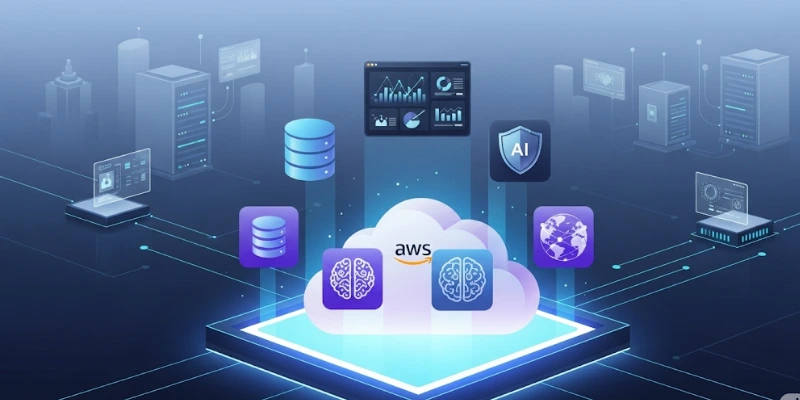In today’s fast-paced digital landscape, enterprise applications have become the backbone of modern business operations. From managing customer relationships to driving analytics and streamlining workflows, these applications demand platforms that deliver high performance, scalability, and robust security. For individuals eager to explore this transformative space, AWS Training in Delhi at FITA Academy offers a strong foundation to understand how Amazon Web Services powers innovative enterprise solutions across industries.
The Rise of Enterprise Applications in the Cloud
Enterprise applications have shifted dramatically from on-premises infrastructure to cloud-based solutions. Traditional setups often lacked the agility required to handle real-time demands, data-heavy workloads, and evolving user expectations. With AWS at the forefront, businesses now leverage cloud-native services to deploy enterprise applications with unmatched efficiency and global reach. This shift is not just about hosting software in the cloud; it’s about unlocking new possibilities in data integration, AI-driven analytics, and seamless scalability. The flexibility to build, deploy, and scale enterprise applications without worrying about physical infrastructure has empowered businesses to innovate faster than ever before.
Why AWS Stands Out for Enterprise Applications
AWS has become the preferred platform for enterprise applications due to its extensive service portfolio, covering compute, storage, networking, databases, and security. It offers purpose-built tools for industries ranging from finance and healthcare to manufacturing and retail, making it the versatile choice for diverse business needs.
AWS also ensures high availability and disaster recovery capabilities, which are critical for enterprises managing sensitive operations. Its global infrastructure spans multiple availability zones, reducing latency and ensuring consistent performance across regions.
Moreover, a pay-as-you-go pricing model allows businesses to optimize costs while accessing cutting-edge services, from machine learning to Internet of Things (IoT) integrations. To explore these advantages fully, read The Six Benefits of AWS Cloud in AWS.
Key AWS Services for Enterprise Applications
AWS provides the comprehensive suite of services designed to meet the demands of enterprise-grade solutions. These include Amazon EC2 for scalable computing power, Amazon RDS for managed database services, Amazon S3 for secure storage, and AWS Lambda for serverless computing. For enterprises focusing on analytics, AWS offers Redshift for data warehousing and QuickSight for visualization, enabling teams to derive insights quickly. Security tools such as AWS Identity and Access Management (IAM) and AWS Key Management Service (KMS) safeguard applications and ensure compliance with global standards.
Modernizing Legacy Applications on AWS
Many organizations face a challenge of modernizing legacy applications that no longer meet current performance and security requirements. AWS provides a variety of tools and frameworks for application migration and modernization.
This process often includes containerization using Amazon Elastic Kubernetes Service (EKS) or Amazon ECS, enabling enterprises to run applications in lightweight, scalable environments. Additionally, AWS Server Migration Service (SMS) simplifies transferring workloads from on-premises servers to a cloud with minimal downtime. By modernizing legacy systems, enterprises gain access to AI capabilities, real-time data analytics, and automated scaling features that significantly enhance operational efficiency. For those eager to build expertise in these cloud modernization techniques, AWS Training in Trichy provides the knowledge base to navigate such advanced solutions with confidence.
Security and Compliance for Enterprise Solutions
Security remains one of the top priorities for enterprises migrating to cloud environments. AWS adopts a shared responsibility model, where AWS manages a security of the cloud infrastructure while customers secure their applications and data. Enterprises benefit from advanced security features like encryption, identity management, compliance certifications, and network monitoring tools. With built-in compliance for frameworks such as GDPR, HIPAA, and ISO, AWS provides enterprises with the assurance needed to handle sensitive workloads.
Cost Optimization and Performance Efficiency
One of the most appealing aspects of AWS is its ability to deliver cost efficiency without compromising on performance. Enterprises can scale resources up and down based on workload demands, preventing unnecessary expenses. Cost management tools such as AWS Cost Explorer and AWS Trusted Advisor help organizations monitor usage patterns and implement best practices for cost savings. Meanwhile, performance optimization services ensure applications run smoothly even during peak traffic, enhancing user experiences and operational reliability.
The Role of Analytics in Enterprise Applications
Analytics has become a cornerstone of enterprise decision-making. Businesses are increasingly leveraging real-time insights to improve processes, enhance customer experiences, and identify growth opportunities. AWS offers services like Redshift, Athena, and EMR to handle vast datasets efficiently. Those looking to deepen their expertise in cloud-driven analytics can gain valuable skills through AWS Certification in Salem, which provides hands-on exposure to analytics tools, data integration techniques, and enterprise-level use cases. This training equips learners with both technical and strategic insights required in today’s data-driven business environments.
Future of Enterprise Applications on AWS
The future of enterprise applications lies in leveraging AI, machine learning, and automation. AWS continues to expand its portfolio with advanced services like SageMaker for AI model training and deployment, enabling businesses to integrate predictive analytics and intelligent automation into their operations. Additionally, as industries adopt hybrid and multi-cloud strategies, AWS is enhancing interoperability with on-premises systems and other cloud platforms. This ensures that enterprises can build flexible architectures that support innovation while maintaining control over critical workloads.
Building Careers in Enterprise Cloud Solutions
The rapid adoption of AWS for enterprise applications has created a strong demand for cloud professionals with hands-on expertise. Organizations are seeking individuals who understand cloud architecture, data analytics, and security frameworks to build and manage enterprise-grade solutions. For learners who want to specialize in these areas, AWS Training in Chandigarh provides practical exposure to real-world scenarios, equipping them with the confidence to contribute to high-impact cloud projects. The ability to design, optimize, and secure enterprise applications on AWS is a career-defining skill in the modern IT landscape.
Also Check: A Deep Dive into Amazon S3 Storage in the Cloud
